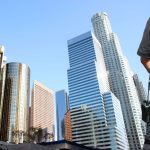Marble is one of the most popular flooring materials today and has been sought after by homeowners for generations. From ancient monuments to modern bathrooms, marble is practically everywhere, and it is easy to see why. When done right, the polished look of a finished marble floor can add the appearance of grandeur to even the most humble of buildings. If you’re installing marble floors in your home or place of business, this is because you want your property to stand out. There are many different styles to choose from to make this desire a reality, with the French Pattern marble flooring style being one of the most unique.
What Exactly Is Meant by “French Pattern”?
Take a look at a bathroom floored with a marble laid in the conventional grid pattern, you’ll usually see small, uniformly-sized squares placed next to each other. There isn’t much imagination going into this style of flooring, and it’s seen as a safer, conservative design. However, wherever they are installed, French Pattern marble layouts are bolder and superficially asymmetrical. The tiles have four different sizes and shapes and while their final placement seems haphazard, they all actually follow a precise kind of design logic.
What Sizes Are The Tiles?
As alluded to before, the shapes on individual French Pattern marble tiles vary in size.
The largest tile shape is a rectangle measuring 16 inches by 24 inches, along with a big square 16 inches by 16 inches. This is followed by a narrower rectangle of 8 inches by 16 inches, and finally the smallest shape is a square sized 8 inches by 8 inches. It might seem counter intuitive, but you do not just lay out one these tiles side by side with the French Pattern approach since that would be boring. This style is desired for and stands out due to its individuality, not conformity to unimaginative design standards.
Save Money with French Pattern
This style can actually be cheaper in some instances than other patterns, because rather than installing a bunch of smaller tiles one by one, the larger tiles can be installed on their own as one distinct pattern covering more floor space with less work. Where there is less room to work with, the tiles can also be cut to suit individual floor plans or personal taste. Some planning goes into the actual installation of the tiles themselves, but to say the pattern as a whole represents a kind of “asymmetrical symmetry” would not be too far off the mark.
If you’re looking for a unique style that adds playfulness to the luster already accompanying marble flooring, this type of design is definitely the way to go.






